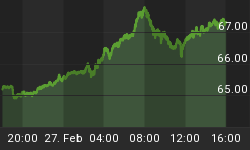
On 20 March George Osborne, the UK's Chancellor, will present his budget. So far he has made a valiant attempt to cap public sector spending, particularly when compared with other finance ministers who were slow to adopt austerity. He has reduced public sector spending from what it would otherwise be, but has not managed to cut the total figure. His strategy now for controlling the budget deficit increasingly depends on higher tax revenues from a combination of forecast economic growth and more aggressive tax collection.
He may be unaware that this is too optimistic. He is advised by a Treasury staffed by economists who believe that through a process of economic modelling and continual refinement of method their control over the desired outcome will be improved. Errors of the past are therefore less likely to be repeated in the future. This approach is the key to understanding the forecasting method upon which Osborne's budget assumptions are based, and it is completely wrong.
Keynesians and monetarists share a belief that mathematical models are a valuable forecasting tool. For this to be true individual consumer and capital transactions in the future as well as the prices at which they occur have to be calculable: this is obviously not the case. The economic effect of future technological and other relevant developments has to be factored in; but how can this be known? Future demand for British goods from overseas buyers has to be assessed, over which no one has any control. Future currency rates against sterling have to be predicted - a sore point at the moment with sterling dropping like a stone.
The fact that different economic models come to similar conclusions is a reflection of the commonality of their assumptions and construction, not independent confirmation of future economic trends. Instead we must use reason.
By taking economic resources away from the private sector through taxation and monetary debasement you reduce the potential for economic progress. By continuing to support and promote favoured public sector activities (the primary function of every government department) you ensure that resources are tied up in production the market would not itself choose to support. By regulating freedom out of consumer choice, you suffocate basic free-market efficiencies.
Today's suppressive economic policies ensure that the economic future will disappoint. Consequently, future tax revenue is overestimated, as well as any reduction of public sector costs associated with economic recovery. If some of the smarter minds in the Treasury suspect this, their instinct will be to increase taxes further to protect government finances.
Meanwhile, storm clouds are gathering, with sterling under pressure. Perhaps it has more to do with the failure of monetary policy to rescue the economy, and the likelihood that the Bank of England will choose yet more easing, than any pre-budget nerves. One wonders how many of those econometric models incorporated a 7% slide against both the US dollar and the euro since the New Year. Either way, a sterling crisis is hardly a propitious background for a budget, painting George Osborne into a very difficult corner.















